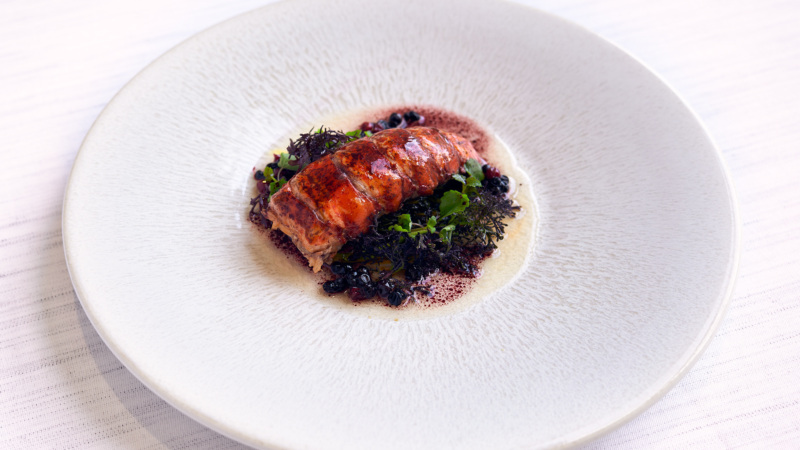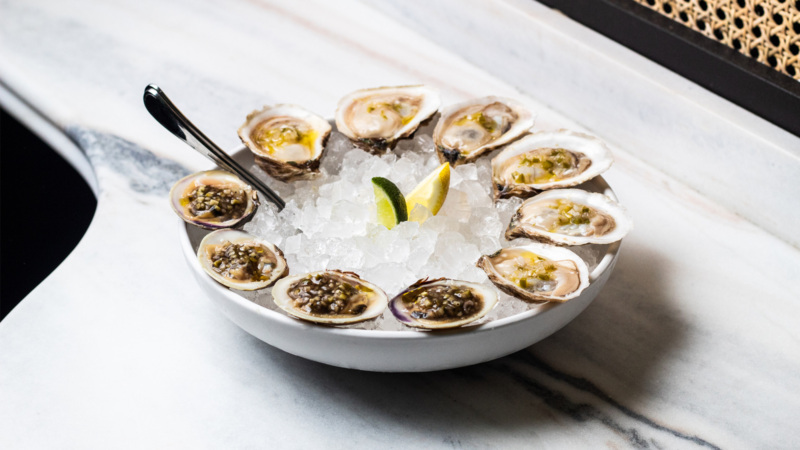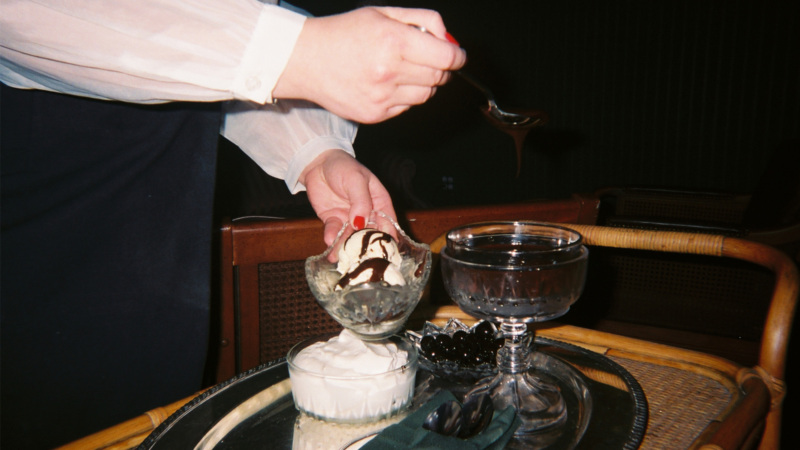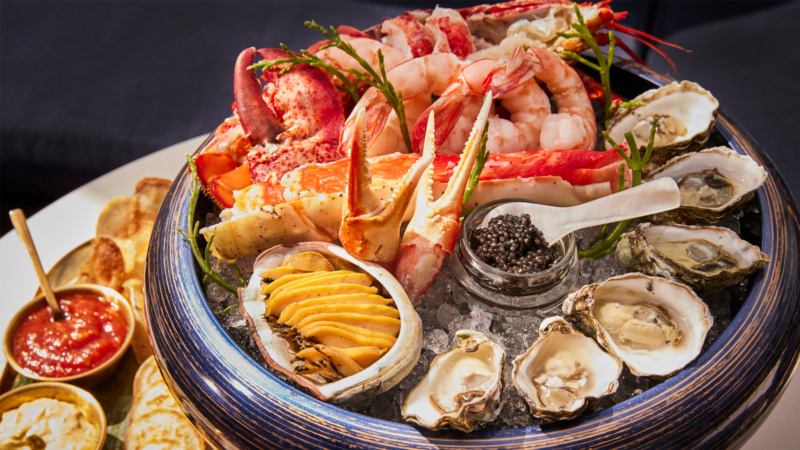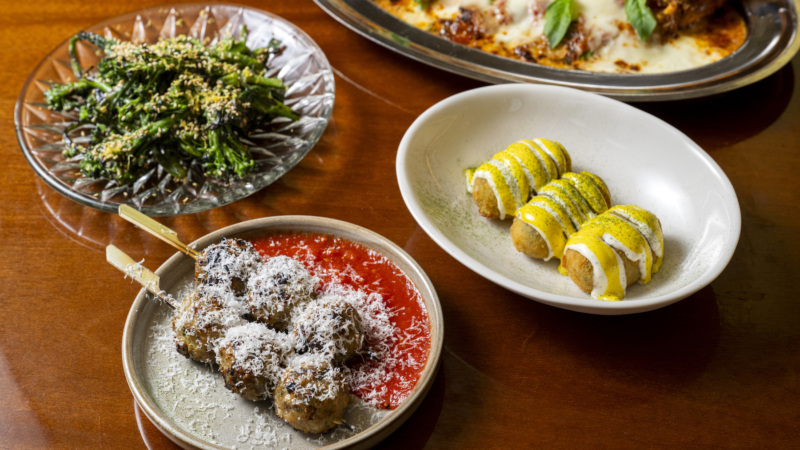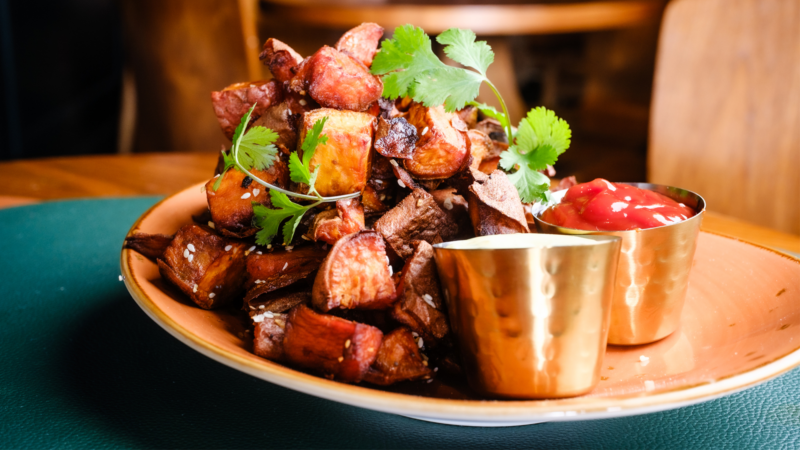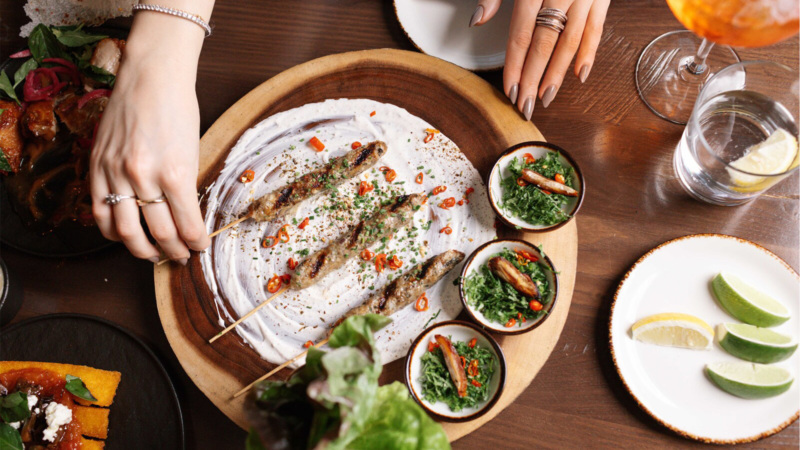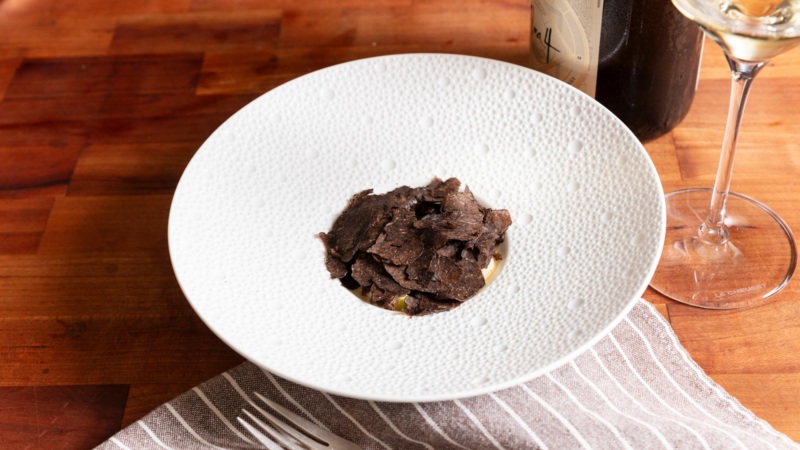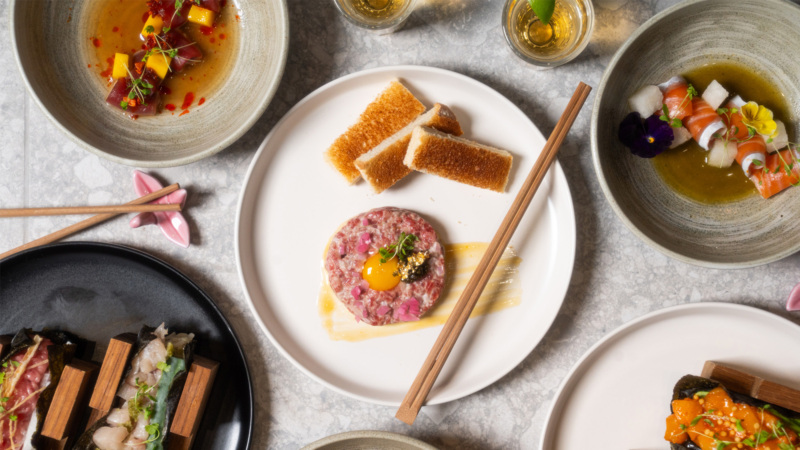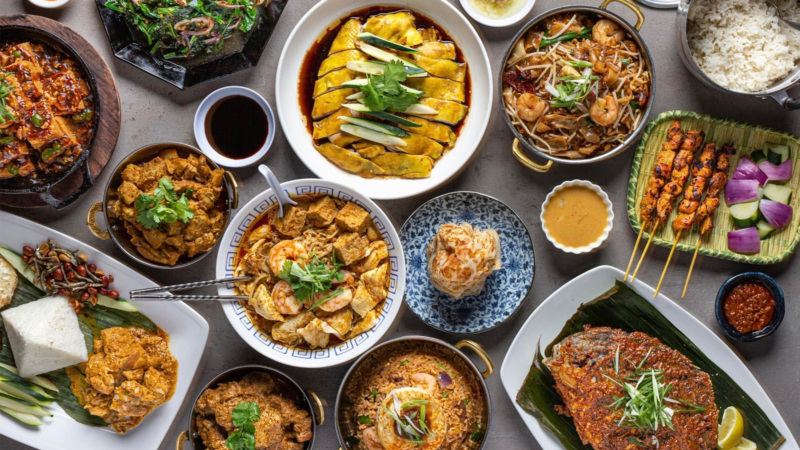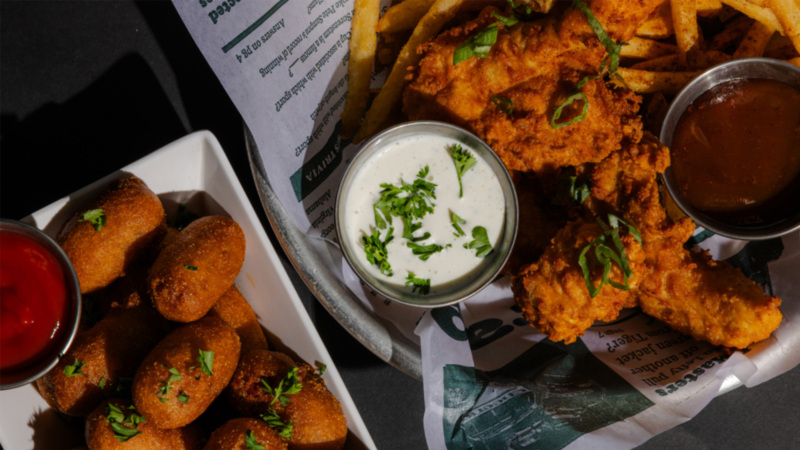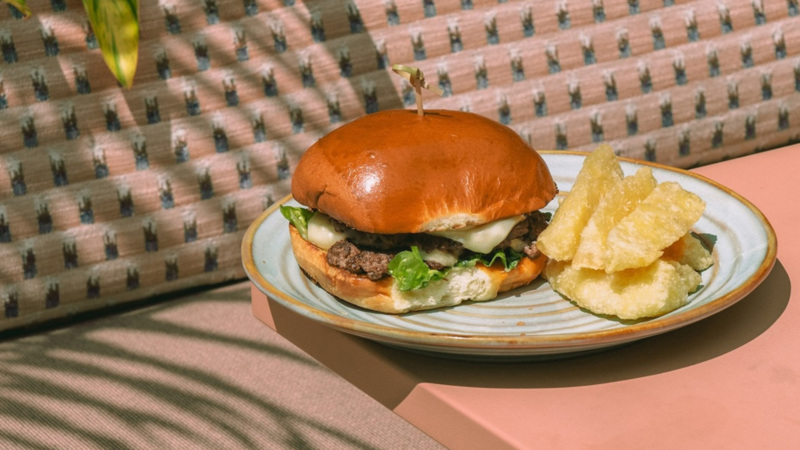
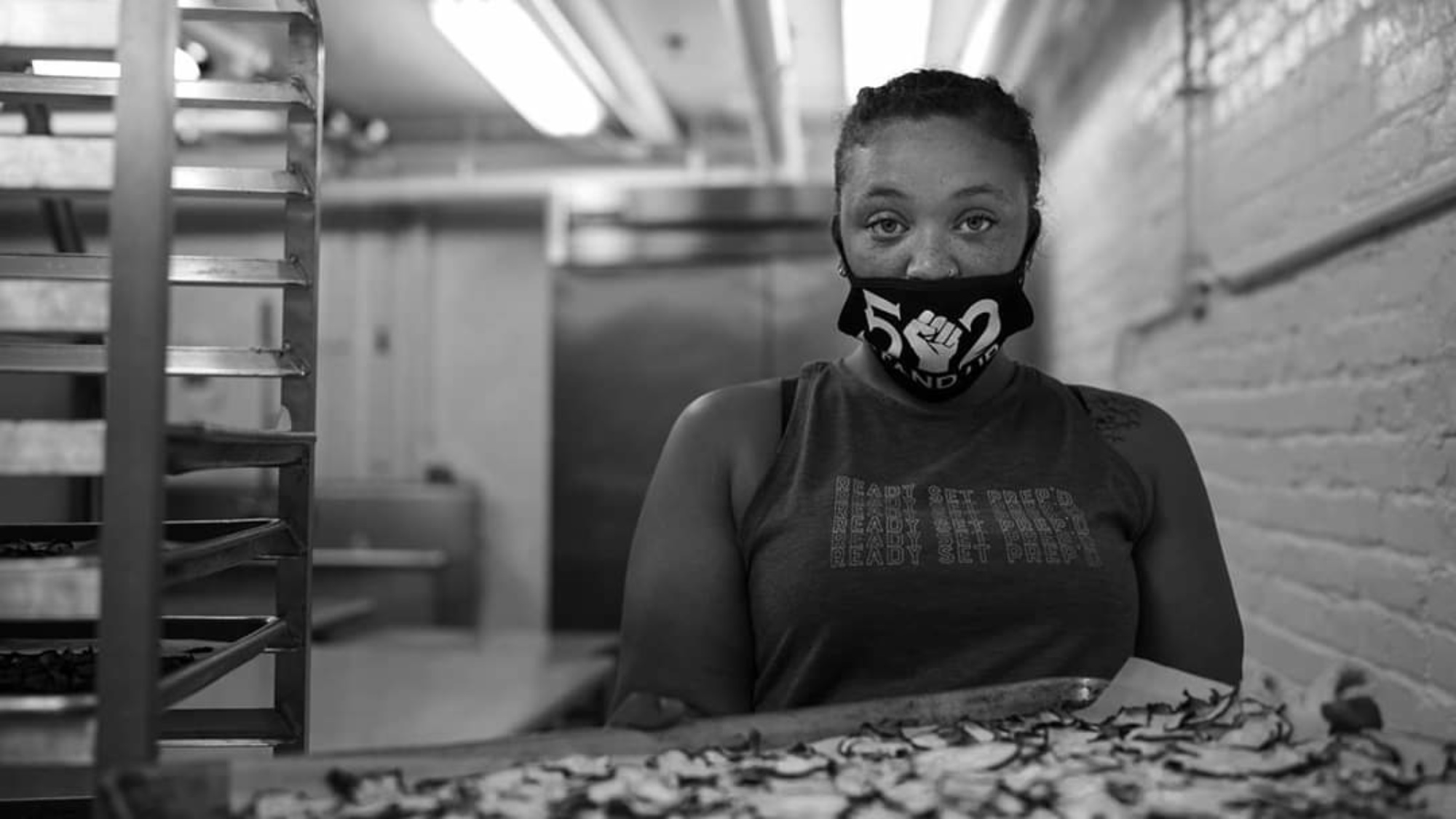
A Louisville Community Kitchen Aims to Heal a Divide. Its Best-Known Chef and a Rising Star Are Behind It.
“I’ve been waiting on Louisville to have this uprising,” Nikkia Rhodes says. “I’m surprised it has taken this long.”
Rhodes shares this sentiment as a biracial woman, a Louisville native, and the head chef of the newly-christened McAtee Community Kitchen, one response to her community’s needs in the midst of ongoing protests for racial justice.
Louisville has been a perhaps underexposed flashpoint in recent months — driven by the deaths of Breonna Taylor and David McAtee at the hands of police. “We’re Louisville. ‘The Compassionate City.’ People don’t expect us to have these problems,” Rhodes continues. But as peaceful protests gained momentum, a toxic mixture of people intent on doing harm, and an asymmetrical police response, led to violence and looting. Rhodes knew that these events would have a cascading effect in west Louisville, where the city’s historically Black neighborhoods are located. “When they looted the one Kroger [grocery store] in the area, I knew that a lot of poor people would go hungry,” Rhodes explains. “I knew the need would be immediate.”
To fill that need, Rhodes teamed up with Edward Lee, arguably Louisville’s best-known chef, to launch the McAtee Kitchen on June 15 — making her new kitchen a very high-profile project. Lee, after all, brought a vision of modern Southern cooking with him when he moved from Brooklyn in 2003, one that acknowledged his Korean roots. That would help his 610 Magnolia and Milkwood restaurants to become fixtures of Louisville’s dining scene, and draw national attention to the city’s restaurants. And Rhodes had been one of Lee’s rising stars, first coming to his attention as an early participant in his chef mentoring program, before working in his restaurants and becoming one of his protégés.
Then came COVID-19. In the wake of state orders March 16 that banned in-person dining, many chefs were forced to permanently close their restaurants. But in Louisville, as elsewhere, another cultural shift was taking place as well. Protests began downtown, not far from Milkwood, on the very night Lee planned to reopen. “After the protests happened, and the McAtee shooting, it touched me,” Lee says. “He was a chef, cooking the barbecue in the parking lot the night he was shot. He died at the stove. I thought that was how I’d go, while I was cooking at a stove.”
Lee felt he needed to do something, so he pivoted Milkwood: Rather than reopen as a restaurant, it would feed people in west Louisville, long one of the city’s poorest areas.
▪️▪️▪️
It’s impossible to understand the import of such a project without first understanding not just the impact of the city’s two recent high-profile killings, but also how deeply divided a city Louisville has become — and the depth of pain in a community that sits on one side.
The one that caught national attention was Breonna Taylor, an emergency room medical technician and first responder during the pandemic. Taylor was fatally shot by Louisville police attempting to execute a no-knock search warrant for narcotics, after her boyfriend Kenneth Walker — who like Taylor, was in bed and asleep at the time — woke up and shot at the intruders. The officers returned fire. No narcotics were found. Taylor was 26.
For reasons that remain unclear, Louisville residents didn’t protest her death until late May, after George Floyd was allegedly murdered by police officers in Minneapolis. But community demands for justice intensified as troubling details emerged about the Louisville police, and the officers involved in Taylor’s death remained on the force. Protests quickly gained momentum, and led to several days of unrest, during which Louisville law enforcement shot several more people, some fatally.
David “Ya Ya” McAtee was one. McAtee operated YaYa’s BBQ stand on the corner of 26th and Broadway, in the Russell neighborhood of west Louisville. He was generous with his time and his food, often giving away the latter for free, including to police. He had a big heart, and customers loved him for it. He also made some pretty good barbecue, especially his pork barbecue sandwiches. McAtee had cooked for decades in Louisville before operating the barbecue stand, and had become a community leader, although never in elected or appointed office. Instead, he earned his stature as a highly regarded “barbecue man,” an affectionate honorific that is not bestowed lightly. As a community leader, he had joined the protests. But early on the morning of June 1, he was shot and killed near his stand by a Kentucky National Guardsman. The circumstances around his death remain unclear, and the McAtee family disputes the police description of what happened. He was 53.
It was in the wake of these two killings that Rhodes found herself responsible for running an effort named in tribute to McAtee — a continuation, as it were, of his work feeding his community. In this moment, when Louisville’s pain is palpable, Rhodes might be a much-needed salve, one of those who could help repair the city’s numerous divides.
After all, she grew up in the Smoketown/Shelby Park neighborhood of west Louisville, one of the city’s historically Black communities, and one that flourished as early as 1865, when thousands of African Americans moved there. This was an early destination In the century following Emancipation, as African Americans left the rural South in search of a better life, and a similar scene played out in cities across America.
In Louisville, as elsewhere, whites didn’t welcome the Black migrants, and created racially-segregated parts of town like Smoketown. Neighborhoods like these are often bounded by railroad tracks or a street. As boundaries, these are not merely geographic: They are psychological reminders to African Americans that they risk their lives by crossing into an area where whites predominate. In Louisville, Ninth Street splits the city into its east and west sides. The west side is where McAtee, Rhodes, Taylor, and a large number of Louisville’s black residents have spent much of their lives.
▪️▪️▪️
This moment, then, was a chance for Rhodes, as a daughter of Smoketown, to draw upon her culinary talent to provide leadership. Her interest in cooking came early, and perhaps like McAtee, from family: She often helped her mom and grandmother, who volunteered to cook in Volunteers of America homeless shelters. But Rhodes also loved watching the Food Network, with a “regular rotation” of shows featuring Alton Brown, Guy Fieri, and Rachael Ray. While a junior at Western High School, she found out about an early college program that allowed her to earn credit at a local community college. “When I learned that I could cook and go to college, I wanted to learn more,” she says.
Rhodes took culinary classes in her senior year at a nearby community college, enough that, when she graduated from Western High School in 2015, she was only a year away from an associate degree. Her culinary instructor, Pete Thompson, was so impressed with her work ethic that he referred her to Kevin Ashworth, a chef who ran a special internship program for young chefs at Lee’s Milkwood called Smoke & Soul. There, at just 18, Rhodes learned every aspect of running a restaurant: office work, customer service, accounting, food preparation, sanitation, and marketing. After finishing the internship, she entered Lee’s Women Chef Program, which among other things provided a week-long externship at James Beard Award-winning chef Anne Quatrano’s restaurants in Atlanta, including Bacchanalia.
After seeing her in action, Lee immediately saw Rhodes’s potential. “She gets it. I don’t have to explain things to her in detail. I just have to say ‘X, Y, and Z’, and she connects the dots,” Lee says. “She thinks like a chef. She’s stubborn, like all chefs are. We persevere. I don’t have to give her a pep talk when things are challenging.”
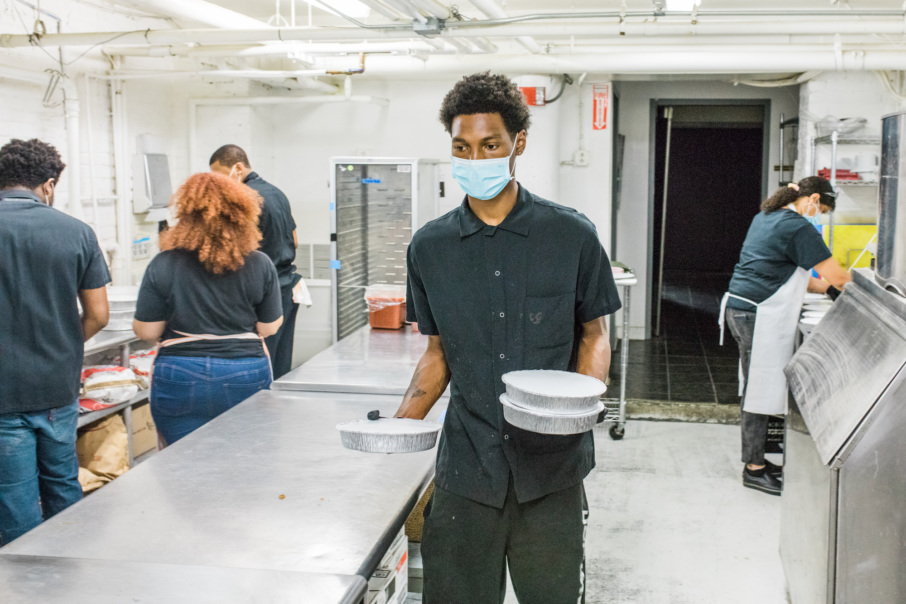
Rhodes, in turn, wanted to share what she’d learned from Lee’s mentoring programs. In 2015, she started a culinary program at Iroquois High School in southwestern Louisville. “We didn’t have a kitchen at that time. So, I’d have a cutting board set up on some desk, and I taught the kids from there,” she says. In time, the high school’s administration liked her initiative so much that they made an unusual offer:”They told me that they would make ‘culinary’ one of the career pathways that a student may choose, and that they would build a kitchen to my specifications.” In 2019, one of the school’s classrooms transformed into a state-of-the-art teaching kitchen that Rhodes ran. The school closed when COVID hit, putting Rhodes out of a job, and her students in a bind. Crucial summer jobs would no longer be theirs.
Lee saw this as a perfect opportunity for matchmaking. “I’ve seen in her something that’s rare,” he says. “A voice. She has something to say. If not for her youth, she would already be considered for head chef in a number of places.” Despite Rhodes’ age, Lee selected her to run his new project — as much as anything as a stepping stone to a greater career. “She’s already proven that she’s ready for this,” he says. “At 23, I was not half the chef that she is now.”
Although Lee experienced pushback as he floated the idea of naming the kitchen after McAtee — some on his team thought it would be too controversial — Rhodes told Lee that “it would mean a lot to her” if the nascent community kitchen bore McAtee’s name. That sealed the deal.
▪️▪️▪️
The McAtee Community Kitchen officially opened June 15, staffed by Rhodes, some of her high school culinary students, volunteers to help distribute the food, and a representative from the Lee Initiative, Lee’s nonprofit dedicated to supporting restaurant staff and producing charity meals. Initially, its kitchen is preparing 250 meals for families of four, a thousand servings in total, three days a week. Those are delivered to three different locations in west Louisville — the Trouble Bar in Smoketown/Shelby Park; the office of OneWest, a community development organization; and the California Community Center — and then distributed on a first-come, first-served basis. At the former Milkwood, Rhodes also gives away boxes of produce from the USDA, and donated groceries, no questions asked.
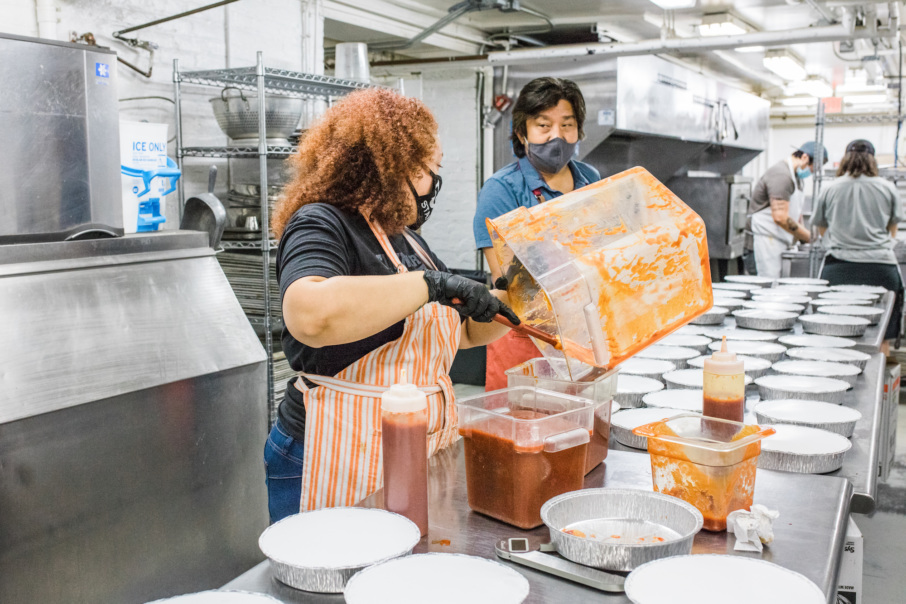
The meal kits are cooked and assembled in a kitchen where the cooks can step out in front of the restaurant and see the ongoing protests — and in their way, reflect both Rhodes’ sensibilities and the pragmatic cooking Lee became known for. “The weekly menus are planned based on who we’re trying to serve, and it depends on the donated food that we receive,” Rhodes says. The first week featured smoked chicken legs and pasta salad on Monday; pulled pork, polenta, and roasted zucchini on Wednesday; and veal chili with cornbread on Friday. As an ongoing tribute to McAtee, barbecue will appear regularly.
When it comes to racial equality, Louisville remains a place of contradictions, like so many other parts of the country. And yes, the Compassionate City struggles to reckon with its slaveholding and segregated past, and a present where African Americans remain at the margins. But Lee prefers to keep in mind the city’s more generous side. “It’s breaking my heart to see people pitted against each other in a place that I know is kind,” he says. “We’re not a place that hates people.”
And so small steps have been achieved. Almost three months after Taylor’s killing, one of the officers was fired from the Louisville Police Department. No-knock warrants are now illegal. And the residents of west Louisville, some of whom once congregated at McAtee’s barbecue stand, have Rhodes and her staff not far away, working to reduce their food insecurity. Maybe, just maybe, continued compassion and great food will increase the community’s appetite for justice. It certainly has for Rhodes. “With Breonna Taylor, I realized that could be me,” she says. “With George Floyd, that could have been my daddy or my brother. I can’t watch that video, and not want to do something.”
Lee, too, sees this project as just a small first step. “I hope to earn your trust and your guidance,” he told mourners at McAtee’s funeral, where he spoke at the family’s request. “This is not about me. When all of the headlines go away, I will still be here for you, and Louisville.”
Adrian Miller is a James Beard Award-winning author who lives in Denver, Colorado. Follow him on Twitter. Follow Resy, too.
Discover More


